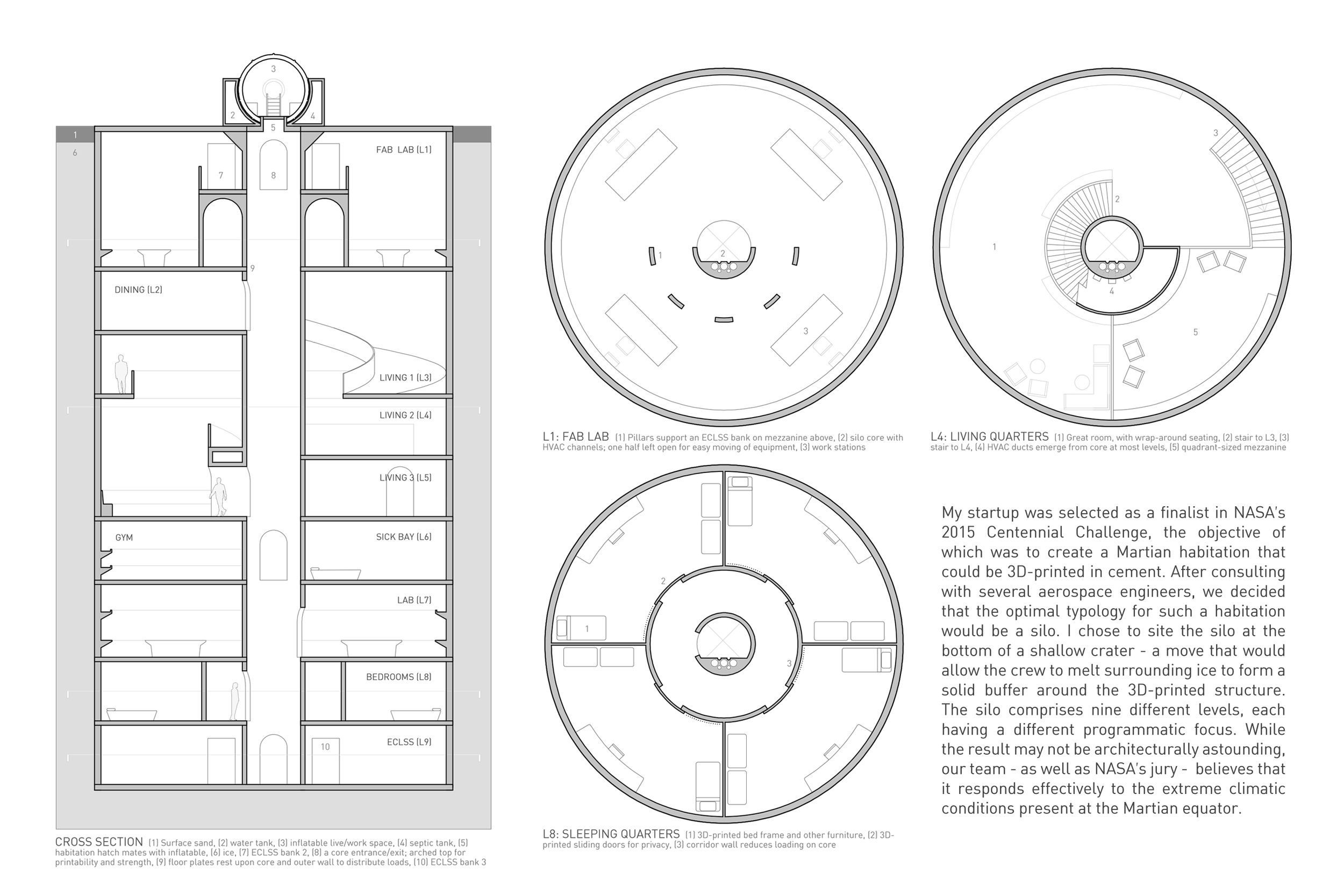






My startup was selected as a finalist in the third and final round of the 2015 NASA Centennial Challenge, the goal of which was to field ideas for a habitation that could be 3D-printed with Martian materials. After consulting domain experts, we decided that the optimal typology for such a habitation would be a silo. I chose to site the silo at the bottom of a shallow crater - a move that would allow the crew to melt surrounding ice to form a a solid buffer around the 3D-printed structure.
The silo comprises nine different levels, each having a different programmatic focus. In general, the more time crew members would expect to spend in a given space, the lower in the silo it is positioned. This lessens their exposure to harmful cosmic rays. While the resulting structure may not be architecturally remarkable, our team, as well as NASA's jury, believe that it responds creatively to the extreme climactic conditions present at the Martian equator.